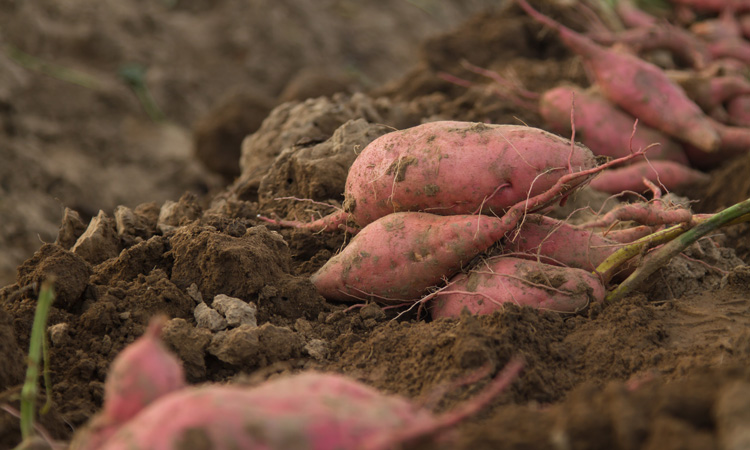Sweet potato microbiome research ‘important first step towards improving yield’
Posted: 23 April 2020 | Sam Mehmet (New Food) | No comments yet
In order to better understand the sweet potato microbiome, researchers have characterised it within and between actual working farms as they look for ways to protect yields from pests.


Grown around the world, sweet potatoes are considered an important source of nutrition, particularly in sub-Saharan African and Asian diets. They are especially significant to sub-Saharan Africa as a source of Vitamin A, a nutrient commonly deficient in the region. While China currently produces the most sweet potatoes by country, sub-Saharan Africa has more land devoted to the crop and continues to expand production.
Despite its importance, little is said to be known about the sweet potato microbiome. “A plant’s microbiome profoundly impacts its health and development,” explained Brooke Bissinger, an Entomologist. “We sought to better understand the sweet potato microbiomes by characterising it within and between actual working farms.”
Bissinger and her colleagues work for AgBiome which was funded by the Bill & Melinda Gates Foundation to identify and develop beneficial microbes that would protect sweet potatoes in the developing world from insects. They used this opportunity to characterise the microbiome in order to inform their project and provide information for other researchers interested in similar work.
They found that, similar to more popularly studied crops, the microbiome followed the two-step model of development.
“We demonstrated a striking variability in the microorganisms that make up the sweet potato microbiome across a single farm. Despite this variability, we found commonalities in how the microbiome develops across fields within a single farm and across two farms in the same region,” said Charles Pepe-Ranney, Microbial Genomics Data Scientist and lead author of the paper.
This is said to be the first study to characterise the sweet potato microbiome using modern, next-generation sequencing technology – an important first step towards leveraging the microbiome to improve yield.
“Also of note, our study suggests that the sweet potato presents a strong ecological challenge to its endophytes (microbes that live inside a plant),” said Pepe-Ranney. “If we are going to develop a endophyte that protects the crop from pests, it must be able to withstand the strong ecological pressure from the crop itself.”









